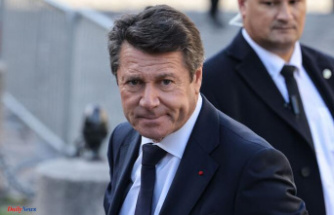Economics Minister Habeck intends to keep two nuclear power plants operational until the spring. According to energy economist Kemfert, the German energy supply is secure even without nuclear power plants. "Expenditure and income are disproportionate," she criticizes. Investments are needed elsewhere.
The energy economist Claudia Kemfert considers the provision of two German nuclear power plants in a so-called emergency reserve to be unnecessary. "The energy supply in Germany is secured, even without nuclear power," said the head of the energy department at the German Institute for Economic Research (DIW) of the "Rheinische Post". Possible supply bottlenecks would not be caused by the German grid, but primarily by ailing nuclear power plants in France.
"Nuclear power plants are unsuitable for the grid reserve because they can't even be switched on and off," says Kemfert. They would have to be checked for safety, staff and fuel elements would have to be kept available. "This is time-consuming and expensive. Effort and yield are disproportionate." According to Kemfert, the expansion of renewable energies, effective energy and load management, the expansion of storage options and, above all, an expansion of capacities in France and other European countries are elementary to secure the supply.
Economics Minister Robert Habeck proposed on Monday, based on an investigation into the stability of the power supply (stress test), that the two southern German power plants should be kept operational until mid-April in the event of bottlenecks: Isar 2 in Bavaria and Neckarwestheim in Baden-Württemberg. After the nuclear phase-out decided under the former Chancellor Angela Merkel, all German nuclear power plants should actually go offline by the end of the year.
Habeck's no to a general lifetime extension for the three remaining nuclear power plants triggered a coalition crash. The FDP is calling for all power plants to continue operating in the longer term in order to keep electricity prices down. The President of the IFO Institute, Clemens Fuest, warned against Germany going it alone. In the "Augsburger Allgemeine" he spoke of a problematic signal to the European partners. "We have a common electricity market and there is not only a national, but also an urgent pan-European interest in using all available capacities."












